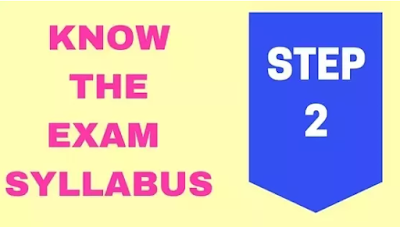Important Dates For UPSC Exam
Combined Defence Services
Registration Date:
C.D.S. EXAM (II), 2017: 08 Sep, 2017
C.D.S. EXAM (I), 2018: 04 Dec, 2017
C.D.S. EXAM (II), 2018: 03 Sep, 2018
C.D.S. EXAM (I), 2018: 04 Dec, 2017
C.D.S. EXAM (II), 2018: 03 Sep, 2018
Exam Dates:
C.D.S. EXAM (II), 2017: 19 Nov, 2017
C.D.S. EXAM (I), 2018: 04 Feb, 2018
C.D.S. EXAM (II), 2018: 18 Nov, 2018
C.D.S. EXAM (I), 2018: 04 Feb, 2018
C.D.S. EXAM (II), 2018: 18 Nov, 2018
National Defence Academy
Registration Date:
N.D.A. EXAM (II), 2017: 30 Jun, 2017
N.D.A. EXAM (I), 2018: 05 Feb, 2018
N.D.A. EXAM (II), 2018: 02 Jul, 2018
N.D.A. EXAM (I), 2018: 05 Feb, 2018
N.D.A. EXAM (II), 2018: 02 Jul, 2018
Exam Dates:
N.D.A. EXAM (II), 2017: 10 Sep, 2017
N.D.A. EXAM (I), 2018: 22 Apr, 2018
N.D.A. EXAM (II), 2018: 09 Sep, 2018
N.D.A. EXAM (I), 2018: 22 Apr, 2018
N.D.A. EXAM (II), 2018: 09 Sep, 2018
Central Armed Police Forces
Registration Date:
ACS Exam,2017: 05 May, 2017
ACS Exam,2018: 21 May, 2018
ACS Exam,2018: 21 May, 2018
Exam Dates:
ACS Exam,2017: 23 Jul, 2017
ACS Exam,2018: 12 Aug, 2018
ACS Exam,2018: 12 Aug, 2018
Combined Medical Services
Registration Date:
Combined Medical Services Exam, 2017:
19 May, 2017
Combined Medical Services Exam, 2018:
07 May, 2018
19 May, 2017
Combined Medical Services Exam, 2018:
07 May, 2018
Exam Dates:
Combined Medical Services Exam, 2017:
13 Aug, 2017
Combined Medical Services Exam, 2018:
22 Jul, 2018
13 Aug, 2017
Combined Medical Services Exam, 2018:
22 Jul, 2018
Engineering Services
Registration Date:
Engineering Services (Preliminary) Exam, 2018:
23 Oct, 2017
Engineering Services (Main) Exam, 2018:
Apr, 2018
23 Oct, 2017
Engineering Services (Main) Exam, 2018:
Apr, 2018
Exam Dates:
Engineering Services (Preliminary) Exam, 2018:
07 Jan, 2018
Engineering Services (Main) Exam, 2018:
01 Jul, 2018
07 Jan, 2018
Engineering Services (Main) Exam, 2018:
01 Jul, 2018
IAS
Registration Date:
Civil Services (Preliminary), 2018:
06 Mar, 2018
Indian Forest Service (Preliminary), 2018:
06 Mar, 2018
06 Mar, 2018
Indian Forest Service (Preliminary), 2018:
06 Mar, 2018
Exam Dates:
Civil Services (Preliminary), 2018:
03 Jun, 2018
Civil Services (Main), 2018:
01 Oct, 2018
Indian Forest Service (Preliminary), 2018:
03 Jun, 2018
Indian Forest Service (Main), 2018:
02 Dec, 2018
03 Jun, 2018
Civil Services (Main), 2018:
01 Oct, 2018
Indian Forest Service (Preliminary), 2018:
03 Jun, 2018
Indian Forest Service (Main), 2018:
02 Dec, 2018













